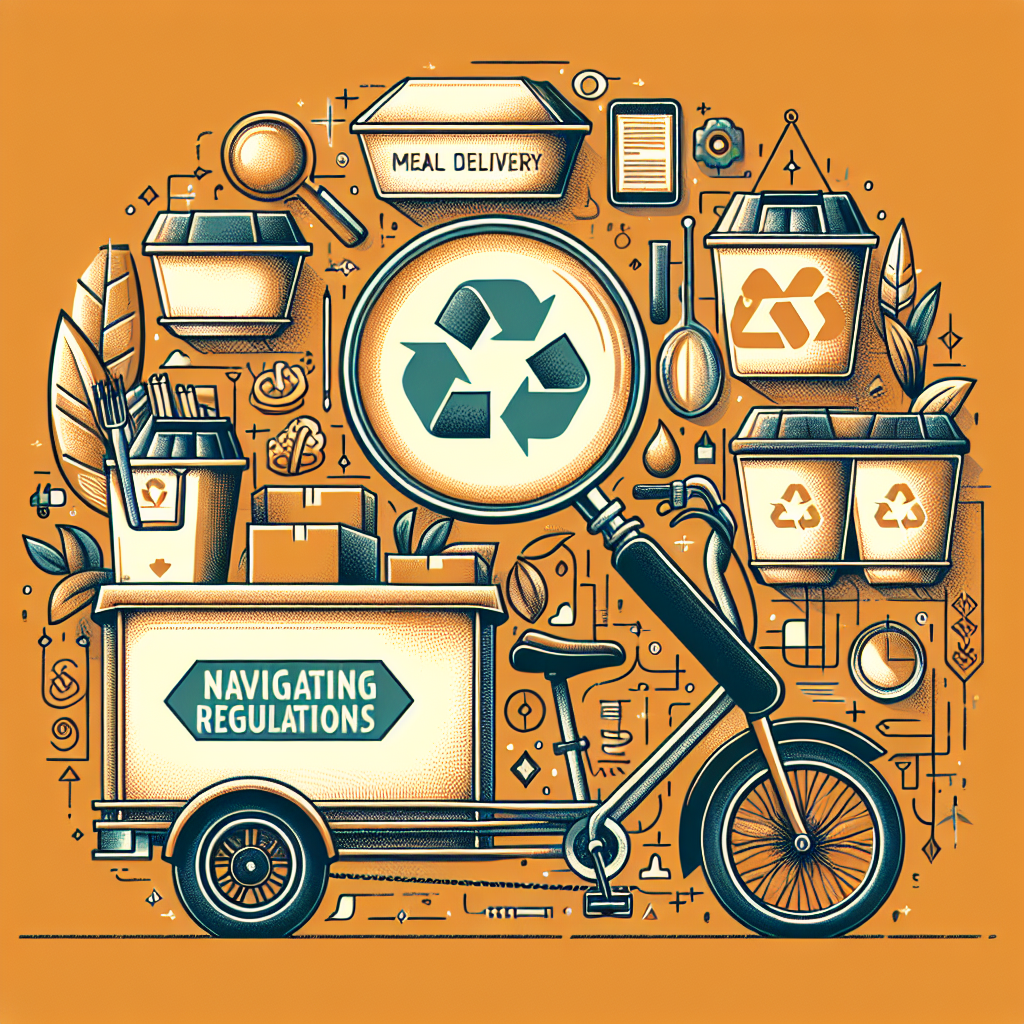The meal delivery industry has witnessed explosive growth over the past decade, driven by consumer demand for convenience and variety. However, as this sector flourishes, it faces increasing scrutiny regarding sustainability and the environmental impact of its packaging choices. It’s essential for meal delivery companies to navigate the often-complex landscape of regulations governing sustainable packaging. This article delves into the importance of compliance, the challenges faced, and strategies for embracing sustainable practices.
Understanding the Importance of Sustainable Packaging
Why Sustainability Matters
In today’s eco-conscious society, consumers are making more informed choices about the products they purchase and the companies they support. According to recent studies, over 70% of consumers are willing to pay more for sustainable products. For meal delivery companies, this presents an opportunity—not only to align with consumer values but to comply with increasingly rigorous regulations aimed at minimizing waste and promoting environmentally friendly practices.
Regulatory Landscape Overview
The regulatory landscape surrounding packaging can be daunting, with various local, national, and international laws to consider. Regulations often focus on waste management, recycling, and the environmental impact of materials used in packaging. For instance, laws regarding single-use plastics have been enacted in many regions, necessitating a shift toward sustainable alternatives.
Key Regulations Impacting the Meal Delivery Industry
Single-Use Plastics Bans
Many cities and countries have implemented bans or restrictions on single-use plastics. Meal delivery companies that rely heavily on plastic containers for their meals may find themselves facing legal challenges and increased operational costs. Understanding these bans and their geographic applications is crucial for compliance.
Environmental Protection Agency (EPA) Guidelines
In the United States, the EPA provides guidelines for waste management and packaging materials. Meal delivery companies must familiarize themselves with these guidelines to ensure their packaging materials meet standards for recyclability and environmental safety.
Extended Producer Responsibility (EPR) Laws
EPR laws hold producers accountable for the entire lifecycle of their packaging products. This means meal delivery companies will need to invest in sustainable packaging solutions and participate in recycling programs. Adopting an EPR approach not only aids compliance but also fosters consumer trust.
Challenges in Achieving Compliance
Material Sourcing and Cost
Transitioning to sustainable packaging often involves sourcing more expensive materials. While this investment can pay off in the long run through increased customer loyalty, it presents an initial financial hurdle that many companies struggle to overcome.
Keeping Up with Changing Regulations
The regulatory environment is dynamic, with new laws emerging regularly. Meal delivery companies need to stay informed about changes in legislation that affect packaging, which can be resource-intensive and sometimes overwhelming.
Consumer Education and Perception
Implementing sustainable practices is not enough; companies must educate consumers about the changes they’re making. Miscommunication can lead to negative perceptions, where customers may believe that sustainable packaging compromises quality or convenience.
Strategies for Navigating Sustainable Packaging Compliance
Evaluate Current Packaging Solutions
The first step toward compliance is conducting a thorough assessment of current packaging practices. Identify materials that can be replaced with sustainable alternatives and understand the implications of these changes on cost and consumer satisfaction.
Invest in Research and Development
Fostering innovation in packaging is crucial for staying ahead of regulations and market demands. Collaborate with suppliers, researchers, and even consumers to develop new packaging solutions that are both sustainable and functional.
Transparent Communication
Clearly communicate your commitment to sustainable practices to your customers. Use social media, newsletters, and your website to showcase your efforts toward compliance. Sharing success stories about reducing plastic waste or improving recyclability can enhance your brand image and build customer loyalty.
Partner with Experts
Navigating compliance can be challenging, and there’s no need to do it alone. Partnering with sustainability consultants, legal experts, and packaging specialists can provide invaluable insights and help develop a robust strategy tailored to your company’s needs.
Conclusion
In the fast-evolving meal delivery industry, prioritizing sustainable packaging is no longer just a choice but a necessity. By understanding the regulatory landscape, facing challenges head-on, and adopting a proactive approach, companies can navigate the complexities of compliance. Sustainable packaging not only meets consumer demand but also positions businesses as responsible leaders in an ever-growing market. Embrace sustainability, and the benefits will ripple out to your customers, your brand, and the planet.


